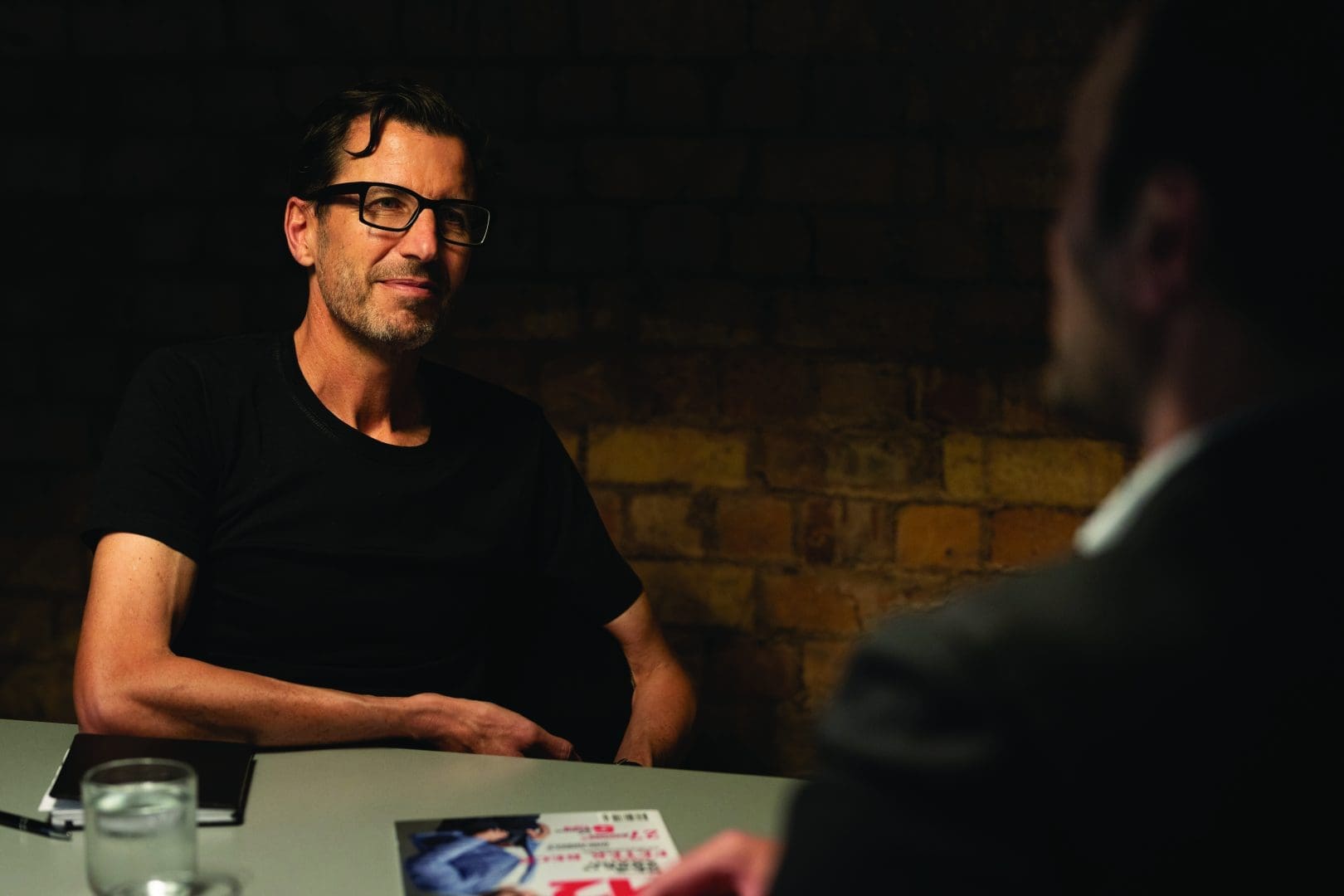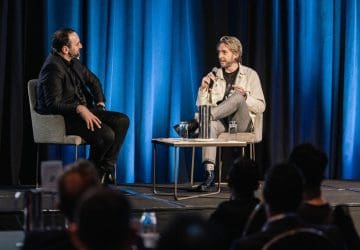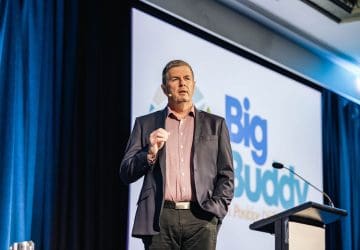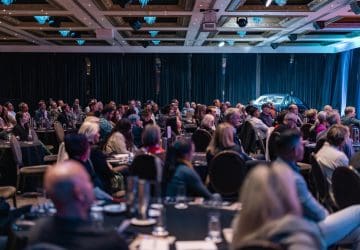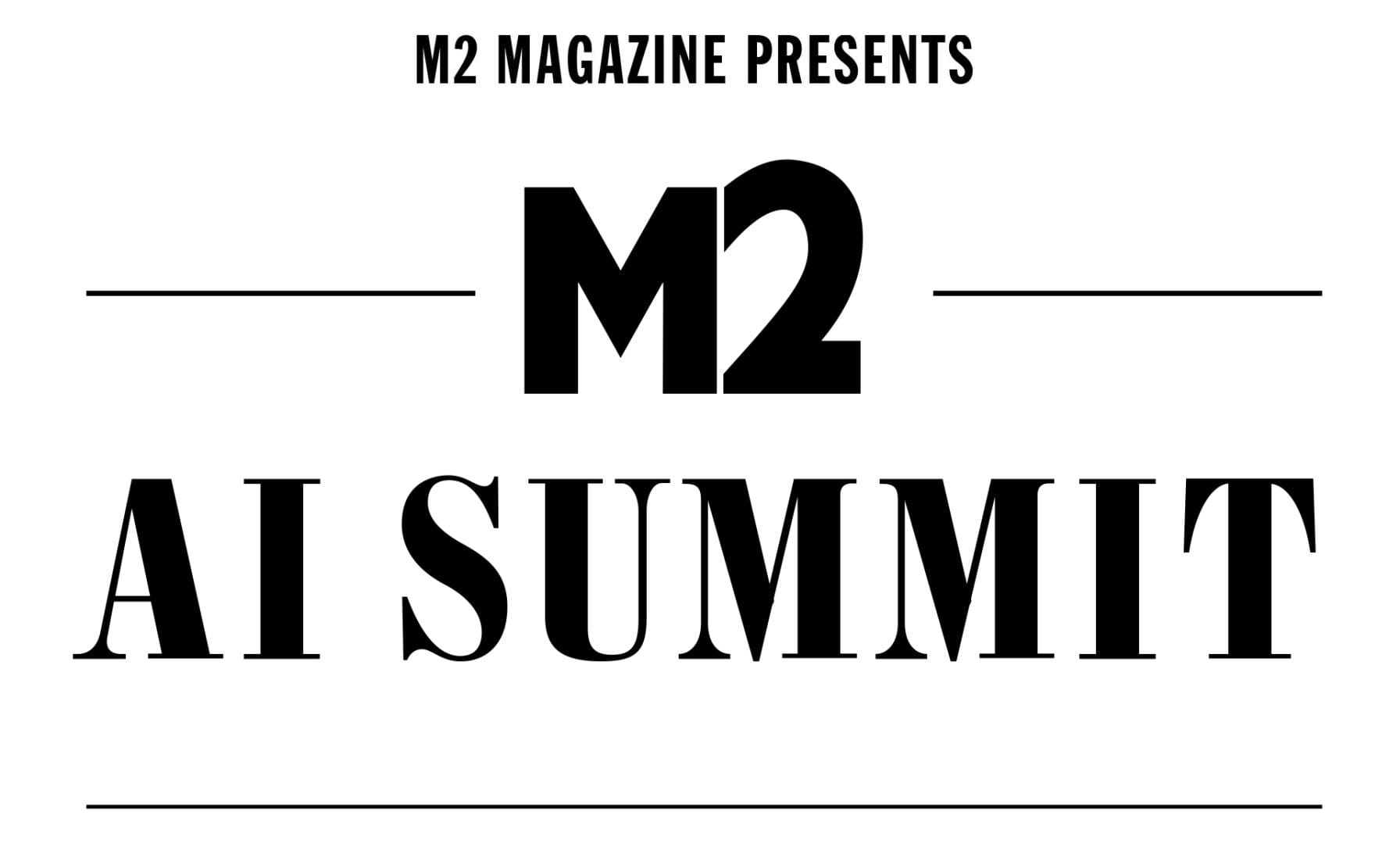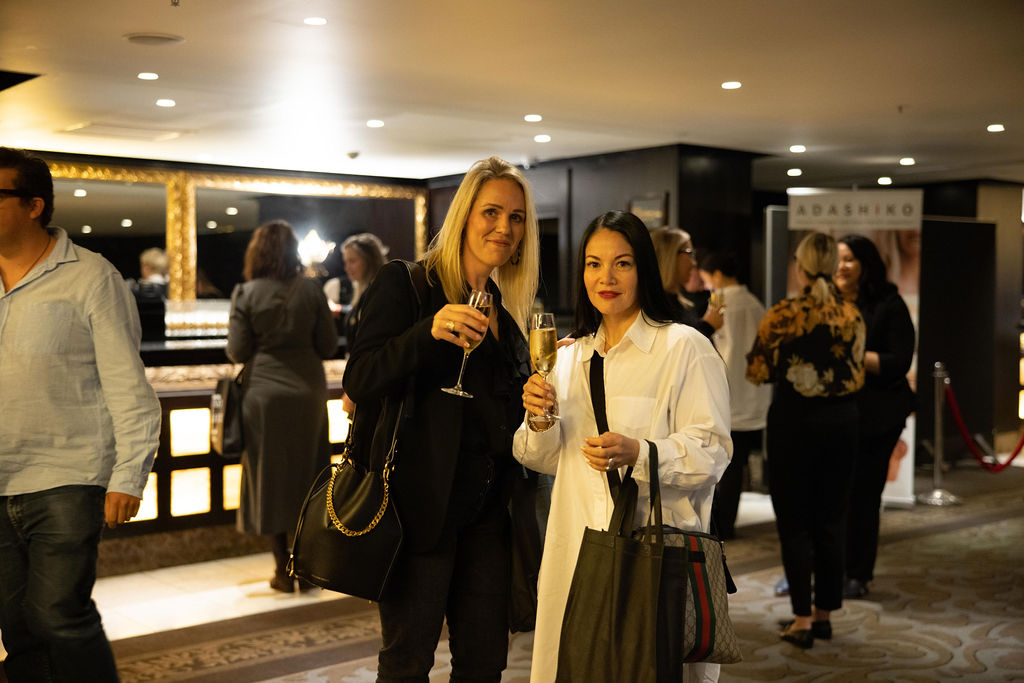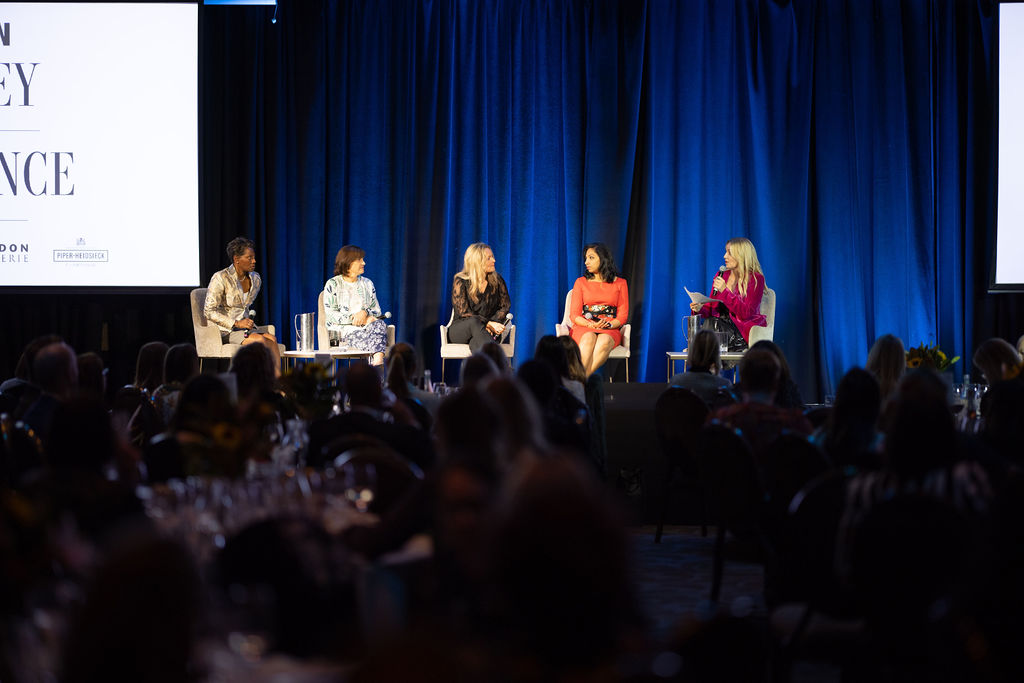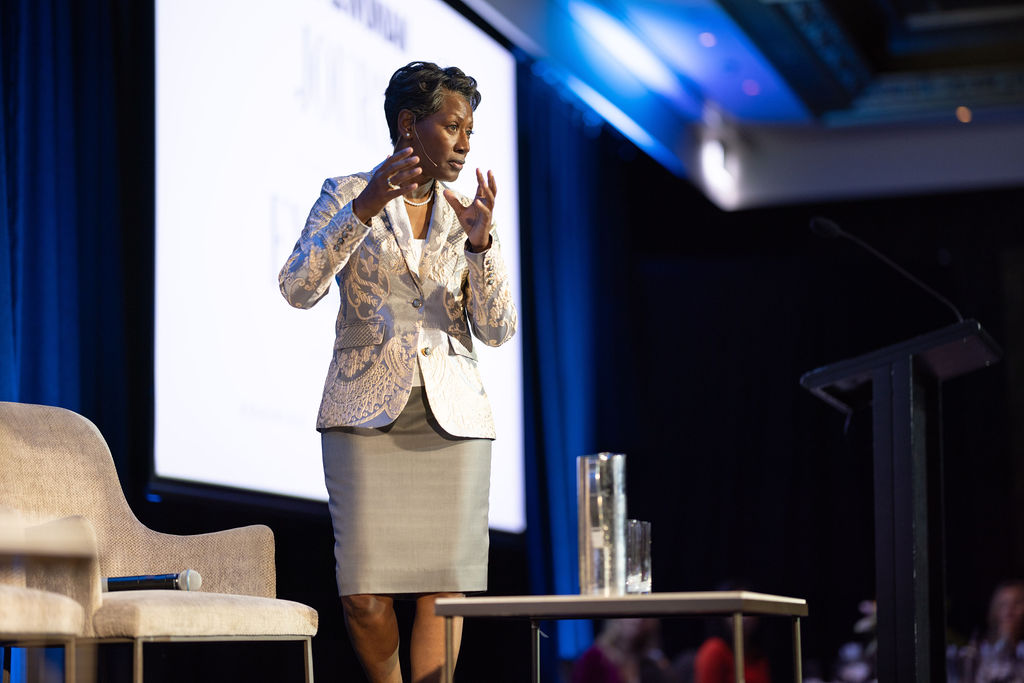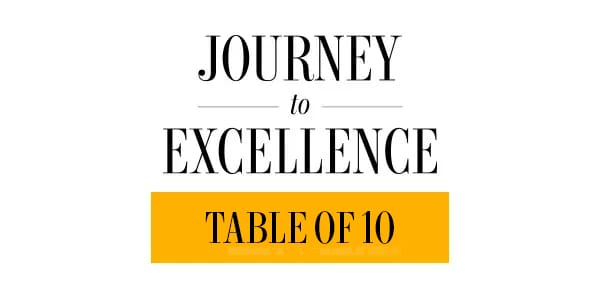The Movement Agency
A decade ago, when the GFC put the squeeze on businesses and advertising budgets and the digital age set about disrupting media and marketing, Duncan Shand and Ben Young decided that it was a good time to start an advertising agency. Turns out they were right.
YoungShand has grown into one of the country’s top independent creative agencies and has helped a chunk of local companies embrace new technology, changing habits and new forms of connection to grow their businesses. We talk to Duncan Shand about the next 10 years, climate change, Diversity & Inclusion, an evolution from primary processing, generational tension… and advertising.
Photography by Journey Pictures
YoungShand is 10 years old now, can you talk about the evolution that you’ve seen in terms of media and technology?
It’s an ever-changing landscape. Ten years ago, it was very much about websites, Google AdWords and banner advertising. Social media was in its infancy.
Back in those early days, organic reach was free and we built big communities quite quickly. I recall a couple of our very first campaigns… I think they were for SPCA. They went mental. We had tens of thousands of people signing up to our promotions – we’d never seen anything like it before. It was a completely different kind of experience to what most were used to, and there were a lot of people getting on the bandwagon.
At the same time that digital and social came along, marketers were under pressure from a budgetary point of view, so they were quite happy to run the ball with social and digital and take their investment away from the more traditional brand building focus that had grown brands for the last 30 years.
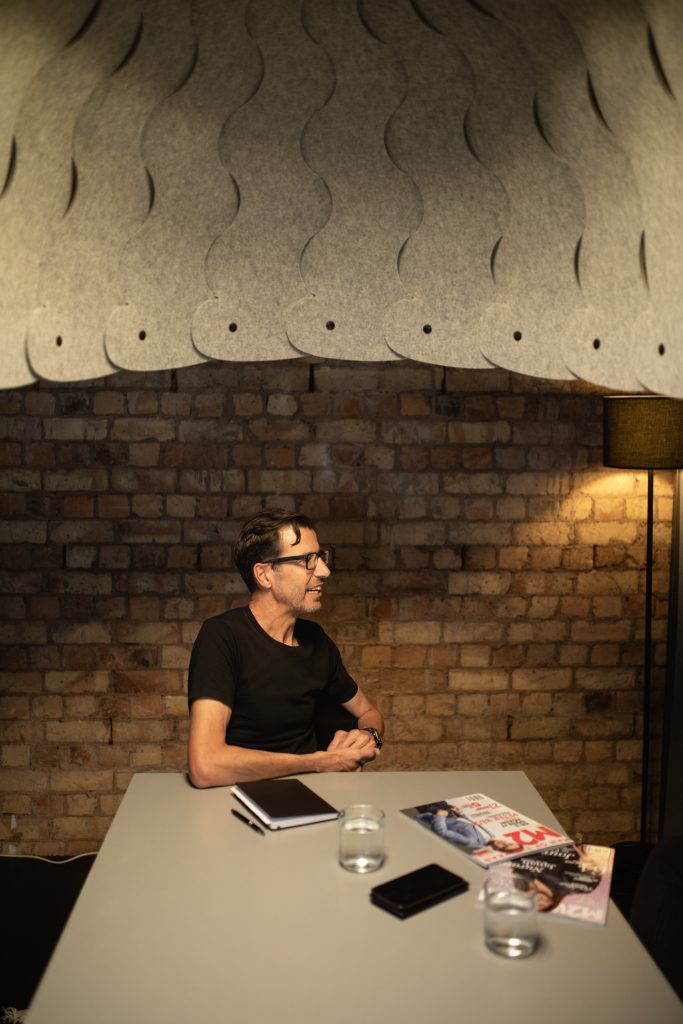
Do you think there was an element of really good timing by starting an agency during the GFC?
I think there was an element of luck there. After the GFC, marketers’ budgets were under pressure to keep the business going and growing. They knew they couldn’t afford to do things the way they had done before.
Digital and social was definitely a hope and a promise of doing things in a different way – in a more measurable way so marketers could see where their budget was working and not working. This was big as understanding and proving an ROI on advertising and marketing was always an agonised area.
It’s understandable, when things are tight, that you’ve got this tension between marketing and sales and you want to hit the ROI, but do you think there’s still a place for some of the unquantifiable stuff as well?
Absolutely. We’re big believers in real balance and we want to be a strong, creative-led agency. We’re really strong on strategic and creative thinking, but equally balanced in data, digital and media as well.
If you can get those two elements working in harmony, that’s what you want. Brands definitely need to invest in brand-building activity. They really need to understand their consumers at the core and tell emotional stories that will get them to believe in, engage with or try their products and their services.
YoungShand has such a wide scope of services on offer, is there a place that you gravitate towards?
I’m more of a strategic marketer. Before YoungShand, I was a Marketing Manager at Air New Zealand for eight years. Prior to that, I was at a biotech company for two years and I also looked after sales and marketing at iHug before it merged into Vodafone. In my heart, I’m a strategy and marketing guy, so I like the beginning of figuring out where we want to go. From there, you’re on the roller coaster of creative ideas, development, tech; it’s a journey.
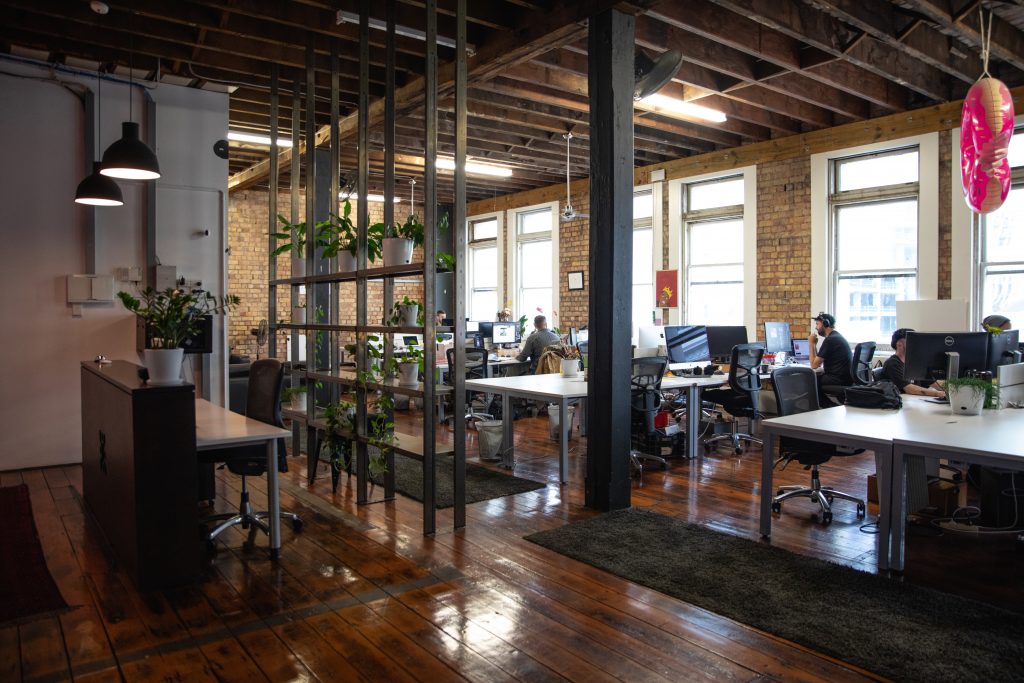
As well as juggling the strategy and the creative, how have you found juggling all these other elements of running a business?
These days I’m enabling the team to press on and do the advertising side of things. I’ve got a fantastic team here, I’m very fortunate. But it’s taken time to get the team in place. There’s always that balance of running the business, looking after the team, bringing new people on and balancing the books. That’s a never-ending task.
I’m actually a bit lucky because before I started down the marketing and advertising path, I studied accounting and economics at university. My first job was as a financial planner and a pricing analyst. After a couple of months of doing monthly reporting cycles, I was like, ‘what else do we do? Is this it?’
I saw the sales and marketing guys were always having fun. They were going out and hustling new business and brainstorming ways to get growth. Ironically, in a BCom at Auckland University, you don’t do marketing in stage one. I had no idea what marketing was. I just got good grades in economics and accounting, so I kept doing that.
I never regret doing accounting because being able to understand it has certainly helped me be a more effective manager. Keeping the business’ books balanced is probably nine parts out of 10 in terms of success for an advertising agency.
Without over-analysing the lack of marketing focus in a BCom, do you think that says something about the country’s wider business perspective of the importance of sales and marketing?
Looking back, it’s quite strange. Historically, New Zealand has always under-invested in brand and marketing but I hope marketing is held in slightly higher regard today. To go through a degree and not have exposure to the side that is building demand is quite scary.
We’ve had a history of number eight wire and the ‘she’ll be right’ attitude. In the long term, that hurts us from a marketing, advertising and branding point of view. Agonising over those last details, the design, getting that meaning into a brand, that’s what separates a logo from a really strong brand identity. At the end of the day, you want people to believe in the brand. You want people to feel what that brand’s about. You want people to be attracted to and want to be part of that brand.
That primary exporting, accounting-oriented, engineering-focused business environment has stopped us from getting ahead by adding value to some of the things that we produce.
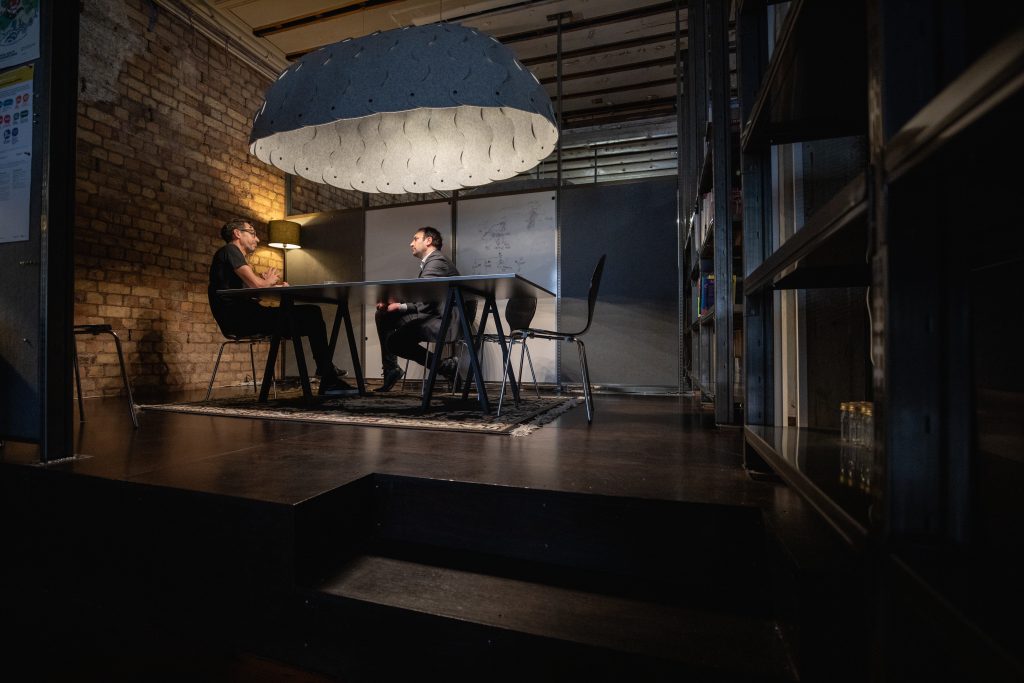
When you look at the landscape now, you see what’s happening. Do you think that there is some evolution?
I think so. It’s an exciting time to be in New Zealand and to be in business. There’s lots of good things happening and there are some fantastic brands, like Xero and Rocket Lab, competing on a global stage. We’re getting beyond just being a farming nation and are actually starting to do some interesting things.
Do you think Tall Poppy syndrome and this humility that we have holds us back from having a wider vision of what we could do globally?
That’s also what sets us apart – that laid back humility and approachability. As long as we balance it with a drive to do great things, but still have that humbleness as a nation, I think that’s quite exciting. That refined but slightly low-key approach could be a really interesting idea.
People are looking for realness and authenticity these days. But pushing it too far or hyping it up like an infomercial, I don’t think that’s what people are looking for. People look for brands that have purpose, give back and are more authentic and real. I think those are really important things.
Those considerations also extend to other areas, such as HR and hiring new talent. Have you seen that shift in purpose with new talent coming in?
Especially in the younger generation. My daughter’s 21 and we attended the Climate March a couple of months ago. It was extraordinary to see the number of people involved, wanting to stand up for something. That works at a consumer level. Consumers want to buy brands that are acting with integrity and have a purpose with what they’re doing.
People also want to work for brands that are doing that. It’s not about flogging something, it needs to be real for that employment brand as well. If you can get both of those sides to work, you’ve got something powerful.
This environmental discussion seems to have become a little bit of a generational bash. would you have any advice to some of the Baby Boomers that are feeling really under attack now?
Yes, the Boomers are taking a bashing at the moment. I’m on the Gen X side of it – it’s hard to think what we would have done differently if we had been in that generation. But I don’t think anyone’s blaming the Boomers. They probably made decisions that, at the time, they thought were reasonable.
It’s just 10, 20 years later this stuff comes home to roost. I don’t think it’s a blame issue, but we do need to get on the bandwagon fast and settle up. Everyone needs to chip in and do what they can do.
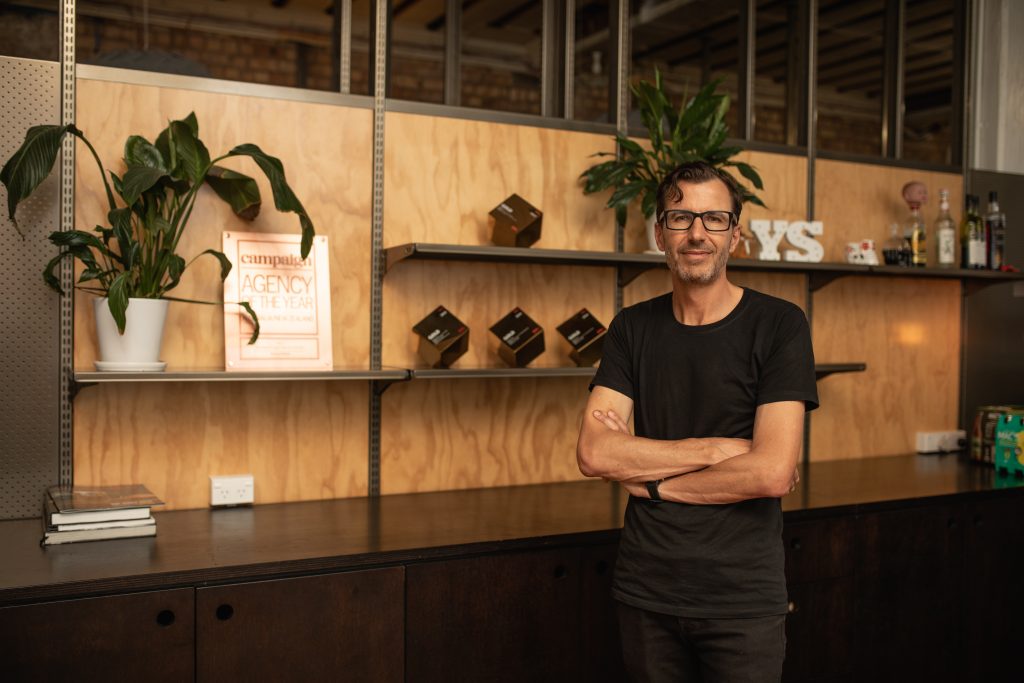
Going back to the business side of things, were there any hard times along the way where you were up at 3am trying to figure out payroll?
There are always those moments. Sometimes you invest in certain areas and it doesn’t pay off. We’ve had two starts of being more creatively-led. The first time didn’t work at all. We had an opportunity to collaborate with a traditionally-led client who wanted to be more digitally focused and it seemed like a good fit.
But their version of digital was just more banner ads. They were an unorganised marketing team that did everything late and didn’t give us any time to do anything properly. The team was too junior to understand properly or to push back and manage the process better. It was a train wreck.
At that time, we’d grown really quickly and that first push to becoming an integrated, creative and digital agency didn’t work. We had to bite the bullet and retrench, which was hard. We went back to focusing on a strong creative digital agency, rather than a fully-integrated agency.
Shifting gears seemed like a good decision at the time. But a year later, all the big agencies are catching up and they’re becoming stronger at digital because they’ve realised that digital isn’t going away and it’s part of the fabric of the media landscape now.
Everyone can tell a digital story now. The point of difference that we had six or seven years ago isn’t there anymore. We couldn’t sustain being just a creative digital agency either and we needed to become an integrated creative and digital agency. We had a couple of pivots in the middle where we just talked with the team, understood what our clients were wanting and just got on with it.
When you start off, it’s really easy to have a culture in mind as you’re growing. But then as you scale, how do you instill that culture and that vision within an organisation?
It’s all about communicating, communicating and communicating. It’s also about structure. Be clear on your own brand, values, purpose and vision – and make sure those things are clear, defined and underscored.
I was lucky enough because of my experience at Air New Zealand and other brands. I’d been part of larger organisations and managed bigger teams. I was used to being part of an organisation that had values, a vision and purpose. That was basically my strategic bread and butter before YoungShand.
From an early point in time, our team sat down and defined the values that we wanted to have as an organisation. Of those four values, we’ve only changed one of them over 10 years.
Our core values are around collaboration, innovation, excellence and passion. We talk to people about those values before they join the team so they know what they’re getting into. It’s also important that we discuss our purpose, what we want to do and where we want to go.
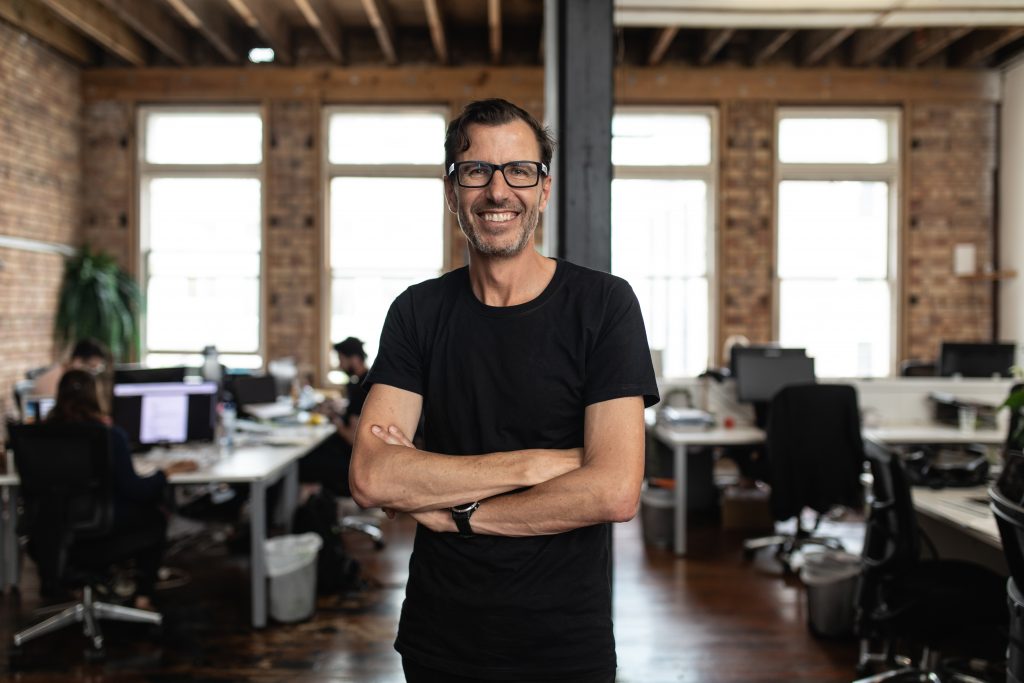
If someone extremely talented came in, but wasn’t the right culture fit, do make allowance for them?
It depends on what that issue is. I think we need to make room for genius and outstanding talent all the time. This is a business, and in the early days I always used to think that collaboration was about cooperation, agreement, everyone being happy and getting on with the job.
But over time, we’ve really learned and understood that collaboration is actually about a bit of robust discussion, not being afraid to put it all on the table, and sometimes, having a polite fight. If you stand up for what you believe to be right and discuss those beliefs through rigor and candid conversation, you can get to an agreement that’s better than just settling for the first or second idea that comes along.
Going back to your point about individuals, there’s always room for quirkiness and diversity. People have different needs and quirks, and that can be part of the business.
Diversity is important for our organisation – which is often uncommon in many advertising agencies.
For great talent, I’ll let people have a lot of rope. But when it gets disruptive or negative in terms of its impact on other people, that’s different – that needs to be managed, and managed quickly. That’s something I think Kiwi managers find hard to deal with.
Diversity is a hot topic across everything at the moment, but it is a complex thing. What are some of your considerations for diversity?
We have to reflect the marketplace, and if we’re an agency full of middle-aged white guys, it’s not going to reflect the audience of the brands we’re looking after, so we need a mix. We need different people. A mix of ethnicities, sex, race, attitudes and different upbringings.
It’s something that we’ve really worked hard on for the last three years. I’m as guilty as anyone of having an unconscious bias. In the early days, I’d meet someone and we’d get on well so we’d bring them in – all of a sudden you’d look around and go, ‘Oh, we’ve got a lot of little mini mes around here.’
We hired Courtney, our HR and People lead for three years. She was great and helped to hold us accountable for who we were bringing into the business. We’ve made quite a considered effort to make sure we shift the dial and bring in diverse people.
Did you notice any shift in the sort of work that you were producing?
My senior management team is now more than 50 percent female. One of my two creative directors is a woman, and we’re doing really well. You look at the results over the last 12 months and it’s come down to getting that mix right.
If you go forward another 10 years, have you got a vision or a plan for where you’ll be?
It’s hard to look forward 10 years. When we were starting out, I couldn’t have imagined that we’d be where we are now. I’m excited about what the next 10 years could bring.
I think we bring something different to the marketplace. There aren’t many integrated, independent agencies that can do strategy, creative, digital production and media. It’s a point of difference.
20 years ago, agencies split into creative or media – but marketers are so busy that having a range of different agencies they have to look after is just another headache.
Whereas with us, we can take a brief, we can look after it all and at the end of the day, we’re accountable for delivering results. We can’t blame creative and we can’t blame the media guys. We work the brief, optimise it and deliver the best results to clients.
Creative brand building, plus the data-digital-media-tech offer is a really nice way that we can build brands, but in an accountable way where we know we’re going to deliver an ROI. That’s definitely a difference.
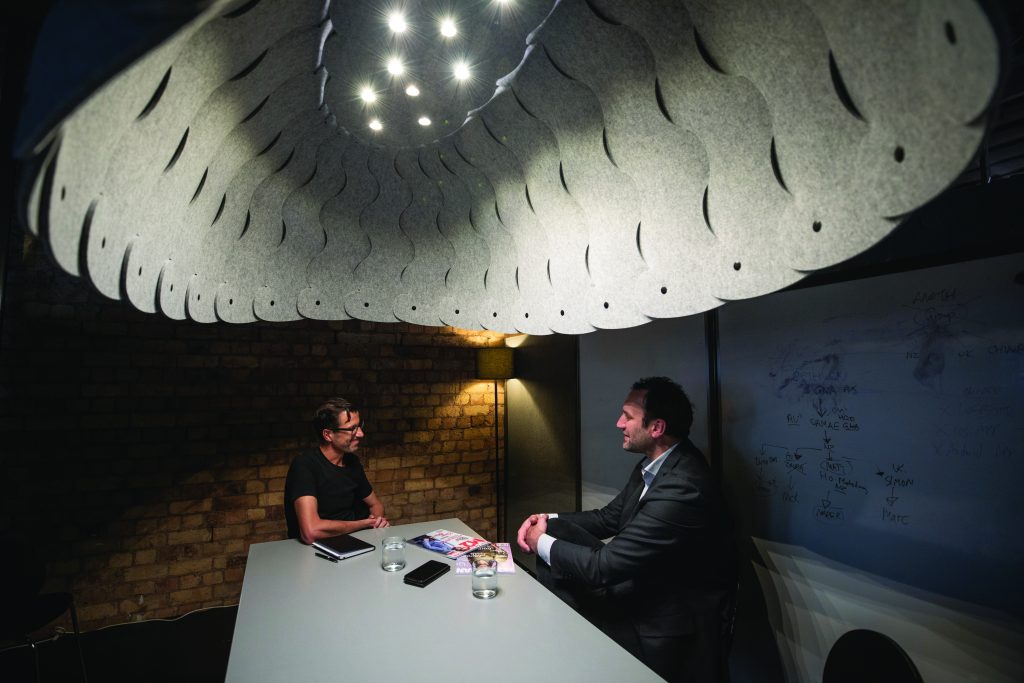
What’s the best piece of advice you’ve ever been given?
I think it was at Air New Zealand, and I was going to do a presentation to the board. We were spending quite a bit of money reconfiguring the aircraft and considering getting rid of first class because we were playing around with the layouts of the planes. It was a big decision and I was leading the project – at the time, I think I was the princely age of 26.
My manager Tony Mark and I went through the presentation. He said ‘Duncan, that was fine, but the next time you do that, I want you to take out your decision and just present the facts. I don’t want the board to know what you think the right answer is. You just need to put up the case and then let them come to the same conclusion you do.’
The best advice is making sure you take people on a journey and let people make their own minds up, rather than trying to lead them too much.
Did they make the same decision?
They made the same decision.

